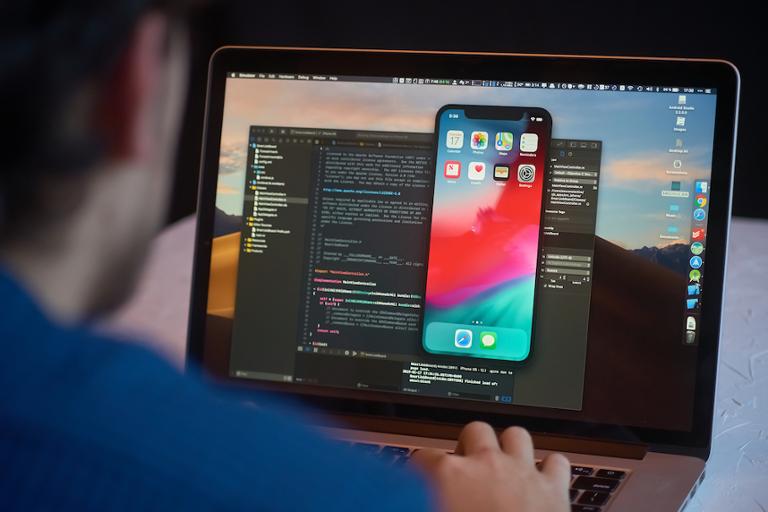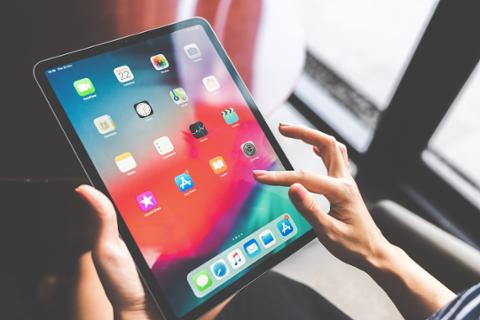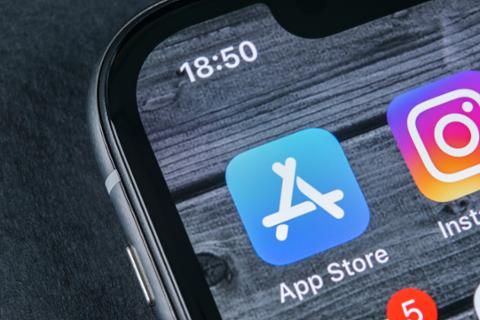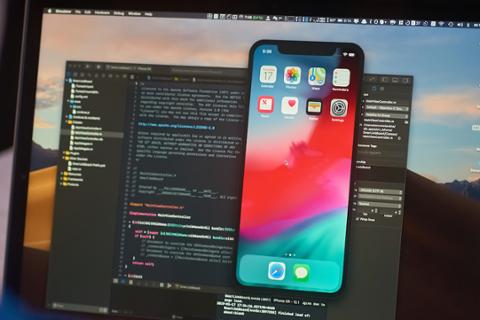All tech jobs have one thing in common: the interview process can be tough. For iOS developers, this can seem especially true: A shifting language landscape is moving away from legacy codebases, and some employers aren’t sure where to focus their energy—Swift or Objective-C (or both)?
It’s not hopeless, though! Sometimes change is representative of opportunity, and that holds true for iOS developers. Instead of crossing your fingers and hoping for the best in the process, here’s how to make sure you’re landing a quality iOS dev job with an excellent employer.
Prepping for your iOS developer interview
Whether you consider yourself an expert in all things iOS, or you’re a relatively new developer trying to score your first iOS-related job, it’s always helpful to brush up on your technical knowledge before entering the interview.
Start by re-reading the job posting. Which skills are required for the job and, of those, which ones do you know? Your interviewer will inevitably ask you about your previous work with Swift and Objective-C, the two primary languages for iOS development, so start with those: What aspects of development in those languages play to your strengths, and where could you use some improvement?
If you’re not sure which skills your potential employer might ask about, consider the following, which pop up frequently in iOS-related job postings:
- Swift
- Objective-C
- Software Engineering
- Software Development
- Xcode
- Unit Testing
- Git
- iOS Application Development
- Continuous Integration (CI)
- UIKit
- Xcode
- UIKit
Sites such as LeetCode will allow you to test your programming knowledge ahead of the interview; in fact, many interviewers pull their questions from sites like these.
Interviewers will also inevitably ask about your work with teams, as they’ll want to ensure you’re a good cultural fit. While it’s important to brush up on your technical skills, your “soft skills” such as empathy and communication will matter just as much. Well before you head for the interview, sit down and think about times at your past jobs when you used teamwork and other skills to help your team move past challenges; you’ll want to use those narratives during the actual interview if they ask about how you work effectively with others.
Potential iOS developer interview questions you’ll face
Different companies have different needs, and different hiring managers will have different ideas about the best questions to ask job candidates about their iOS development experience. Because of that, it’s often difficult to determine the exact questions you’ll face in an iOS developer interview.
However, numerous websites offer lengthy lists of sample iOS questions, focusing on everything from UIKit to iOS application states to design patterns and frameworks. GitHub even has a curated list of public repositories with sample questions and answers, for your reading and reviewing pleasure.
Determine if the company’s a good fit
According to James Budgen, technical recruiter and hiring consultant at Arc.dev, you should consider a company’s size when evaluating the job opportunity. If your prospective employer is roughly the size of your previous workplaces, you’ll have a good idea of what they need in terms of software development and project management. “It's important that the iOS developer matches the culture of your business,” he says. “If you're hiring for a big enterprise, you'd look for previous work experience in large, well-known companies. If you're hiring for a startup, you'd look for a developer with experience working for startups.”
Large companies may appreciate your entrepreneurial spirit, but will also want you to respect the processes in place. Meanwhile, a small company may give you the green light to push into production on Friday afternoons. Culturally, large and small firms are often very different, and this can have an impact on job satisfaction, depending on what you’re looking for. Bottom line: if you don’t think you’d like working at a company that size, don’t pursue the job.
Ask the interviewer about the technical skillset
For iOS developers, keeping up with changes in Swift can be difficult. (If you’re still learning the language, check out the Dice tutorials on Swift functions, loops, sets, arrays, and strings.) Developers who know Swift, but have no experience or knowledge of Objective-C, should expect raised eyebrows in the interview process—for companies supporting older apps or services, it’s likely that much (maybe most) of their stack is written in Objective-C.
Don’t be afraid to ask for details on the company’s tech stack and development process before and during the interview; have them clarify which languages and frameworks they utilize. Depending on their answers, you can move forward with confidence or opt to bow out of the application process early.
Come with a portfolio
“If [an iOS developer candidate has] open source experience, it's usually an indicator that they're good iOS developers,” Budgen said. “It means they're probably passionate about what they do, and even do it for fun in their spare time.”
In other words, open source is also a good place to prove your worth to employers. If you have experience in a framework or language the company uses, having an open source repo (hopefully loaded up with your previous projects and experiments) is a good way for them to peek into your workflow. Even if you’ve forked a repo and are simply adding code, it can show the hiring company you’re actively working on tech important to their flow.
Many iOS developers have built games and/or apps for fun in their spare time. If these products are polished (and, ideally, in the App Store), bring them up during the job interview and include the relevant links on your application materials; hiring managers are always interested in your work.
Be prepared for anything
Finally, we suggest you ask clarifying questions during the interview itself—and be prepared for an interviewer to ask you pretty much anything. Hiring managers often ask open-ended questions, and they want very detailed answers.
Don’t be afraid to ask clarifying questions in return. For example, if a recruiter or interviewer says, “Tell me about your experience with React Native,” that’s open to interpretation. A good clarifying response may be something along the lines of, “Are you asking if I’ve used React Native for iOS development in a production environment, or if I’ve used it at all?”
The company may be exploring React for cross-platform and want your thoughts on it. They may also be exploring moving away from React, and they’re curious if you’ve ever migrated a codebase. Sometimes, employers ask opaque questions to see if your interests align with theirs.
Asking clarifying questions not only shows you’re knowledgeable, but can also provide glimpses into what the employer is looking for from someone in the role.
Conclusion
Large companies aren’t for everyone. The bureaucracy can be maddening. Small companies probably don’t have infrastructure in place to support some iOS developers’ huge ambitions. A company’s size speaks to its culture, both of inclusivity and the day-to-day work environment.
For most iOS developers, a typical job interview will dig deep into your technical skills. Interviews are often won or lost before you enter the room; take your time to prep by reviewing your skill-set and practicing with sample questions. In the interview itself, don’t be afraid to ask any clarifying questions that come to mind, especially during a pair-programming or whiteboard exercise.
A company will be critical about who it hires, and you should be just as critical about where you focus your energy as a job seeker. Asking questions about the company’s culture, workflow, and philosophy can help assure you that you’re the right fit.



